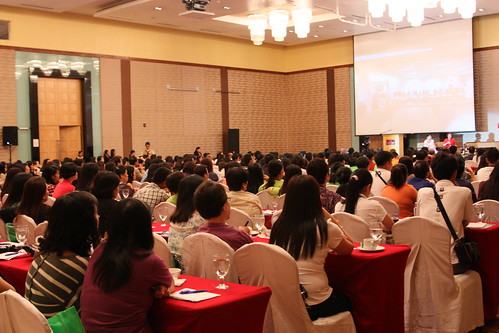.png) |
| Angels Walk for Autism 2026 Shirts |
The Autism Society Philippines (ASP) has grown from the 11 mothers who bonded together for the causes of their children in 1989 to nearly 13,000 members, with 97 chapters all over the country.

The Autism Society Philippines (ASP) increases public awareness about challenges faced by Filipinos on the spectrum, advocating for appropriate services, and providing the latest information regarding intervention, education, and advocacy. It is comprised of persons with autism, families, teachers, and educators whose lives have been touched by autism.

The Autism Society Philippines (ASP) reaches out to the many communities across the islands to organize and help make available services and support to persons with autism and their families, in close coordination with government agencies, local government units, and community builders. Our chapters remain to be driving force behind the organization's meteoric growth.

.png) |
| Angels Walk for Autism 2026 Shirts |
1. Limit screentime. Social media accounts are meant for older children, ideally 15 years old and older. According to the Child Mind Institute, "parents should also be aware of the risks of screen use, such as addiction, decreased focus, sleep problems, and bullying or scamming."(1) Find the right balance.
2. Talk about online behavior early and often. Explain that not everything online is true, and not everyone online is kind. Use real examples, but avoid fear-based language. Focus on safety and self-respect. Internet Matter[dot]org recommends the use of online safety tools and parental controls for children, like Google Family Link and Microsoft Family "to set screen time limits, see what games they’re playing and how long they’re online.” (2) Parental controls on platforms like TikTok are designed to inspire healthy conversations on online boundaries between teens and parents.
3. Explain online legal risks in simple terms. Help your child understand that posting unverified accusations or repeating rumors online can hurt others and can have serious legal consequences. Teach them that concerns should be brought to trusted adults or proper authorities, not aired online. RA 10627 or the "Anti-Bullying Law" (3) protects school children, while RA 10175 or the "Cybercrime Prevention Act" (4) gives broad protections against scamming, cyberlibel, privacy leaks, among technology-centric crimes.
4. Watch out for dishonest content. Deepfake voices, fake screenshots, or incomplete information can confuse even adults. Show children how technology, when used in bad faith, can create things that look real but aren’t. Encourage them to ask before sharing. Agree on rules for posting, commenting, and private messaging. These should be about protection, not control. Autism Awareness Australia reminds us: "Don’t assume that your child/teenager has digital literacy simply because they use technology often." (5)
5. Do not use your children for your social media content. Parent accounts meant to share one's ASD journey should NOT include the faces of their children, who cannot give INFORMED consent. Children with disabilities have the right to privacy. This is enshrined in Article 22 of the United Nations Convention on the Rights of Persons with Disabilities. (6)
1. Pause before posting or responding online. Social media platforms are designed to reward speed, emotional reactions, and high engagement, which can encourage impulsive responses. Before replying to heated or scandalous posts, take a moment to ask: Is this factual? Is it necessary? Is it safe for me? You are not obligated to respond to everything you see. Thoughtful pauses help protect your well-being and reduce the spread of harm or misinformation.
2. Know the difference between criticism and libel. In the Philippines, making false statements online that harm a person’s reputation may be considered libel under the law. Posts intended to shame, accuse, or harass (especially when unsupported by credible evidence) can have serious legal and personal consequences. If you encounter such content, it is safer to disengage, document what you see, and avoid retaliation. Protecting yourself online also means choosing restraint and accountability.
3. Use AI as a tool, not a truth source. AI can be helpful for drafting ideas, organizing thoughts, or learning new concepts, but it does not guarantee accuracy. AI systems may produce outdated, incomplete, or incorrect information, especially when discussing real people, events, or sensitive issues. Always double-check facts using reliable sources before sharing or acting on AI-generated content.
4. Curate your digital space. Using features like mute, block, and report is not a sign of weakness. It is an act of self-care. These tools help protect your mental health by limiting exposure to harassment, misinformation, or distressing content. You have the right to decide who has access to you online and what kind of interactions you allow. Creating a respectful digital environment supports your well-being and enables healthier, more meaningful engagement.
5. Protect your personal information. Be mindful of what you share online, including personal details such as your full name, address, school, daily routines, or private struggles. Not everyone online has good intentions, even if they seem friendly or supportive at first. It’s okay to keep parts of your life private and to say no to conversations that feel uncomfortable. Setting clear boundaries helps keep you safe and gives you more control over your online experiences.
 Posted in: 4public
Posted in: 4public
Lazada: https://bit.ly/awalkshirt2026lazada
 Posted in: HOMEpowerment
Posted in: HOMEpowerment